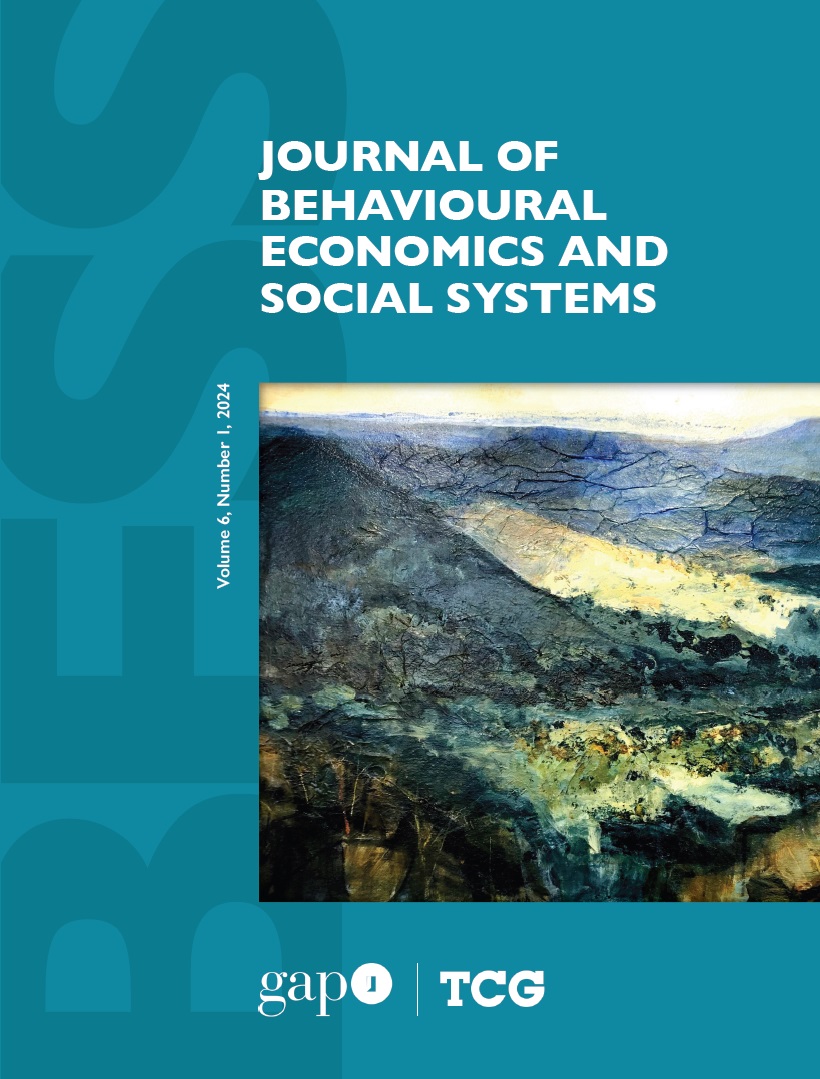About the Journal
The Journal of Behavioural Economics and Social Systems (BESS®) aims to leverage insights from behavioural economics to help solve the most pressing challenges facing the world today. BESS® explores the theory underpinning the practice of the 'Second Track' with a view to broaden recognition of the methodology and encourage its wider adoption.
 At the Journal of Behavioural Economics and Social Systems, we believe in problem solving. When business transcends complicated and becomes truly complex, a new approach is needed. Wicked problems involve social justice, social change and social economy issues characterised by stakeholder multiplicity and policy confusion. Addressing this difficulty requires the ability to negotiate politically, under conditions of uncertainty, and to work effectively in networks and at the boundaries between academia, industry, and policy.
At the Journal of Behavioural Economics and Social Systems, we believe in problem solving. When business transcends complicated and becomes truly complex, a new approach is needed. Wicked problems involve social justice, social change and social economy issues characterised by stakeholder multiplicity and policy confusion. Addressing this difficulty requires the ability to negotiate politically, under conditions of uncertainty, and to work effectively in networks and at the boundaries between academia, industry, and policy.
So we try to arm our readers with ideas that help them work in complex social systems acting as agents of economic, social, and policy change, solving problems that are too difficult for the rational-scientific approach. To do that, we enlist leading experts in academia, business and government, collaborating to express their thoughts in the most influential way possible.
BESS® focuses on the behaviour and interaction of economic agents in solving wickedly complex problems. The Journal aims to transform economic thinking by challenging the prevailing concept of human rationality. We welcome submissions that deal with a transdisciplinary social sciences approach, especially psychology, or use experimental methods of inquiry. Thus, contributions in behavioural economics, experimental economics, economic psychology, social cognition, social networks, and judgment and decision making are especially welcome.
We publish manuscripts of many lengths, and just about any style that might help us share an idea effectively.
We invite contributions that consider the Journal’s themes mentioned above, or related topics about group problem solving, both from a theoretical and an empirical point of view. Qualitative and quantitative research contributions are welcome. Short essays, commentaries, and book reviews are also encouraged.
The Journal adheres to the Harvard Referencing Style Guide.
- BESS® Guidelines for Authors
- BESS® Style Guide
- BESS® Guidelines for Reviewers
- BESS® Peer Review Process
On 16 July 2025, Global Access Partners (GAP) announced the transition of BESS® to Emerald Publishing, marking a significant milestone in the journal’s evolution after six successful years (see the media release). From 2026, Emerald will assume responsibility for the production of BESS® via ScholarOne. GAP will maintain a presence on the journal’s Editorial Board to support a seamless handover and ensure the continuity of its editorial vision.
This journal provides immediate open access to its content on the principle that making research freely available to the public supports a greater global exchange of knowledge. Articles published in BESS® follow the license Creative Commons Attribution-NonCommercial-NoDerivs 3.0 Unported (CC BY-NC-ND 3.0) Authors retain copyright and grant the journal right of first publication with the work simultaneously licensed under a Creative Commons Attribution License: Attribution - NonCommercial - NoDerivs (by-nc-nd). Further information about Creative Commons





